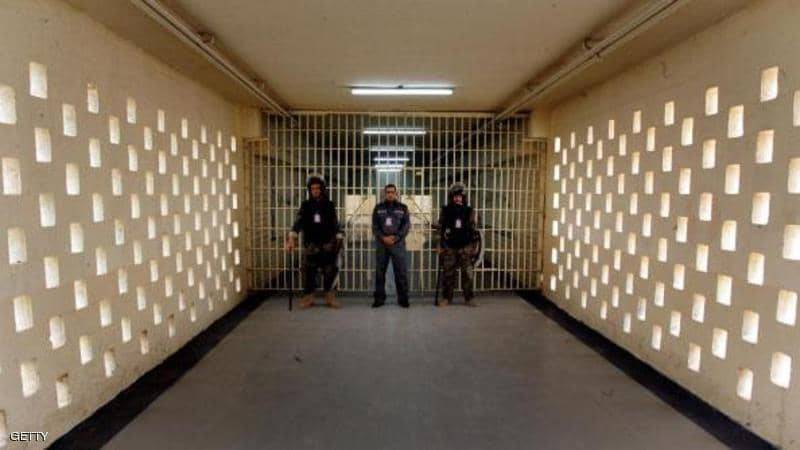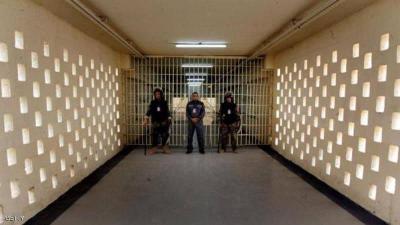Under the title "Torture in Iraqi Prisons Escalates: New Death in Basra," Sky News reported that with the repeated incidents of inmate deaths in several Iraqi prisons, due to torture or under mysterious circumstances, as indicated by local and international human rights organizations, this issue has become a focal point of widespread criticism both internationally and within Iraq.
In the latest documented case, the family of the detainee, Mohammed Al-Dubi, announced his death, stating that the cause was torture and mistreatment in the prisons of the Basra Anti-Crime Directorate. Recent reports also noted two other deaths within the prisons of Basra, the southernmost province in Iraq.
In this context, the United Nations Assistance Mission for Iraq (UNAMI) and the Office of the High Commissioner for Human Rights issued a detailed report highlighting the phenomenon of torture and the poor conditions of prisoners in Iraq. The report aims to prevent torture in detention facilities across Iraq, including the Kurdistan region, by identifying risk factors, limiting them, and eliminating potential causes.
UN Secretary-General's Special Representative in Iraq, Jenin Hennes-Plasschaert, stated, "There are no circumstances, however exceptional, that justify torture or any form of impunity." The report covers the period from July 1, 2019, to April 30, 2021, and is based on interviews with 235 individuals deprived of their freedom. More than half of all detainees interviewed by the UN mission provided credible accounts of torture, aligning with the patterns and trends documented by human rights organizations in the past.
The findings show that most legal conditions and procedural guarantees that could prevent torture have not been routinely respected, raising concerns about the absence of effective legal oversight to address the reality of interrogation rooms and detention facilities, perpetuating a cycle of denial and impunity.
The report also points to widespread issues such as lack of access to defense, inadequate medical examination, and absence of transparency regarding the security forces with official detention powers, as well as interrogations aimed at extracting confessions. Additionally, there are significant concerns that existing mechanisms for addressing torture complaints seem ineffective.
Danelle Bell, head of the Human Rights Office at the UN Assistance Mission for Iraq, stated, "Establishing an effective legal framework that criminalizes torture and enforcing independent national mechanisms for prevention and investigation, as outlined in the National Human Rights Action Plan for the next five years in Iraq, would help address the ongoing lack of accountability for torturers." She added, "Compliance with legal obligations and procedural guarantees, and providing effective remedies for torture victims, will enhance change and build confidence in the Iraqi legal system."
Moreover, the Iraqi High Commission for Human Rights issued a protest statement two days ago regarding the dire conditions of Iraqi prisons. The Commission highlighted what it termed as inhumane practices and torture against detainees within prisons, calling for an end to these violations and adherence to human rights standards in dealings with detainees.
Commenting on the UN report, Haidar Al-Mulla, a leader in the "Progress" political coalition, told Sky News Arabic, "Certainly, there are widespread violations of human rights within Iraqi prisons." He added that "violations include the lack of essential reform measures, as per the Geneva Convention, reform facilities are meant to rehabilitate those who commit crimes or misdemeanors to reintegrate them as positive elements in society, which is unfortunately absent in Iraqi prisons today. Therefore, we observe violations and the absence of human rights standards even after verdicts are issued, rights stipulated for prisoners are not met."
Al-Mulla further stated, "Due to the circumstances surrounding the war on ISIS, many detainees and those sentenced during that period, I firmly believe, without exaggeration, that 90 percent of them are innocent and not guilty if objective conditions are provided for investigating them." He continued, "This can only be addressed by amending the amnesty law, as there is a misconception in the Iraqi political milieu about the nature of the amnesty law, which is believed to be specific to the innocent, while in fact, an innocent person does not need an amnesty, rather they need an apology regulated by law; amnesty, based on legal jurisprudence, is inherently for the convicted and accused."
A member of the Iraqi Parliament’s Human Rights Committee, who preferred to remain anonymous, indicated to Sky News Arabic that the committee intends to propose a motion to interrogate the Iraqi Minister of Interior regarding this issue in parliament, which has increasingly become pressing with the ongoing reports of torture and deaths of prisoners in Iraqi detention centers.




